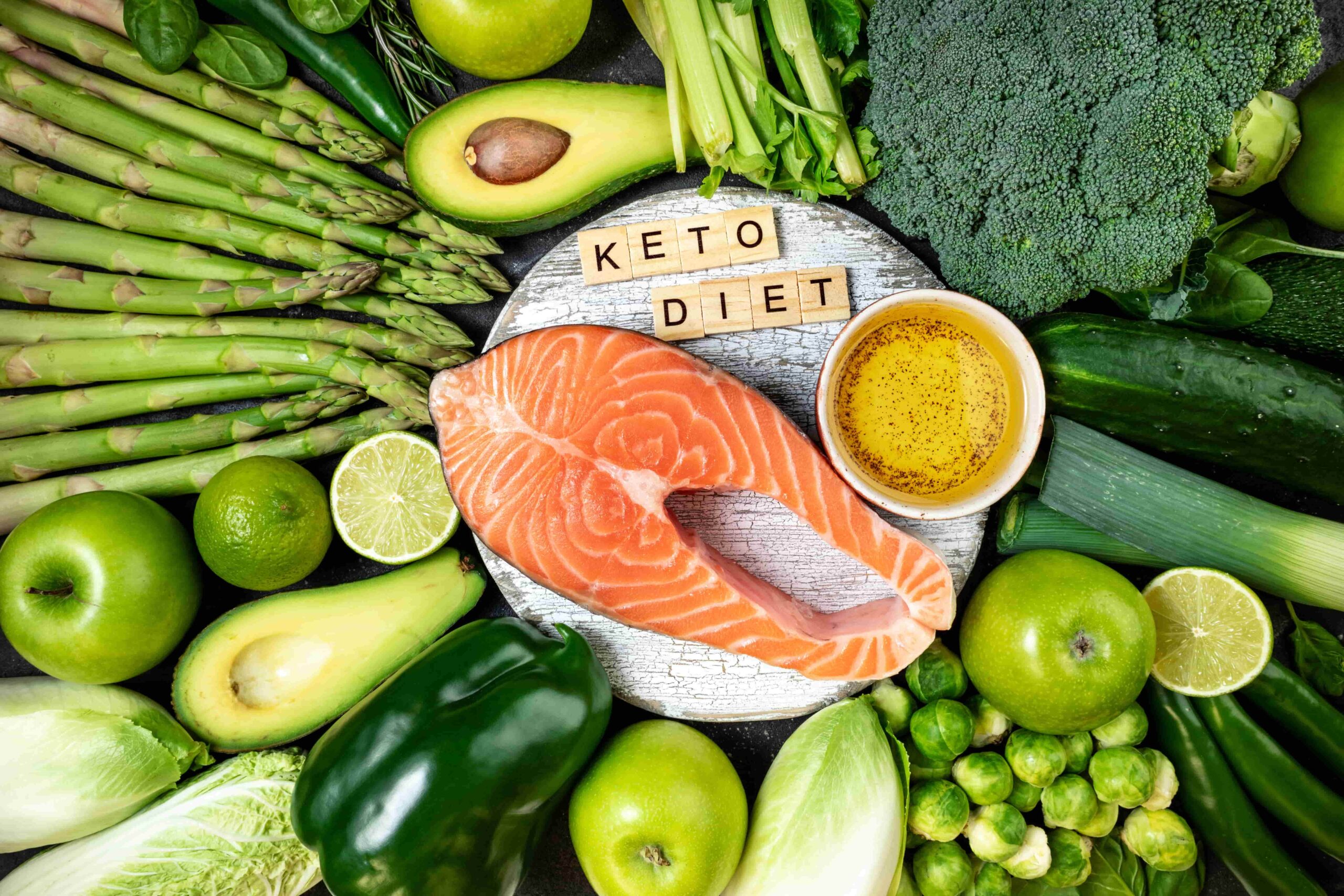As an Integrative Nutrition certified health coach and counselor, I cringe at the title of my newest blog post, 12 Weeks of Keto. No, I’m not talking about Aikido either, although I really wish I was because that would be awesome. I’m talking about the low-carb, high fat, ketogenic craze. It was made famous in the nineties by Dr. Robert Atkins and has once again risen in popularity.
12 Weeks of Keto
New research shows Atkins high protein, high fat, low-carbohydrate diet was beneficial. Well, sort of, after a fashion. Despite what the research shows dropping the carbs seems like an impossible order. I’d have to have a pretty good reason, right?
Nutrition science has shown high fat (the right kind) might be beneficial in maintaining a healthy weight, keeping energy high, blood glucose/sugar stable, and in some instances for burning fat as fuel. The biggest reason I’m going ketogenic for 12 weeks is to reduce and eliminate insulin resistance as a preventative health strategy. My grandparents, mother, and father suffered from Diabetes and I’d like to nip this genetic predisposition in the bud.
Going Ketogenic
A keto diet, A.K.A. a low carb diet, forces the liver to produce ketones which are then used as energy. It was originally tested in the early twenties as a nutritional treatment for epilepsy when medications were not as effective in management of seizures. According to research on ketosis and idopathic epilepsy[1}, the ketogenic diet’s efficacy in reducing seizures was repeatable and consistent.
Although, the exact mechanisms for this reduction aren’t well known or understood. What is well known is that the ketogenic diet remains one of the most controversial plans in modern nutrition today. It is considered a fad, last resort to weight loss, and by some nutritionists – dangerous.
Insulin Resistance a Modern Epidemic
Besides a treatment for epilepsy, Insulin resistance (IR) is one of the main reasons the ketogenic diet is still prescribed today by nutritionists, dieticians, or doctors. IR is harmful state that goes unnoticed, sometimes for years, before it is recognized and treated. Often times when left untreated, it is too late and Diabetes has already progressed. When identified early you can reverse insulin resistance it the beginning stages by managing it through lifestyle and diet. These two indicators of preventative health, lifestyle and diet, will help maintain a safe level of blood sugar.
What is Insulin Resistance?
By making this simple, we can break it down into two main processes. When you eat something high in carbs, your body produces glucose and insulin.
- Glucose is the easiest molecule for your body to convert and use as energy. A compound that is quickly absorbed, it is chosen over any other energy source.
- Insulin is produced to process glucose in our bloodstream.
Insulin is a protein-based hormone made by your pancreas. Your cells use it for metabolizing glucose (sugar). For those of us with insulin resistance, our cells throughout the body aren’t using insulin efficiently. This means our cells are having trouble absorbing glucose. I know this won’t sound pretty but it helps me understand the process. When IR happens, it literally malfunctions in the conversion process of storing energy, the cells signal there is enough stored in the muscles, as fat, and because it has nowhere left to go, sugar is then dumped into our bloodstream.
A little science…..
Insulin resistance is dangerous for many reasons. Insulin’s primary purpose is to regulate the metabolism of fats and carbohydrates. Your digestive system breaks down carbohydrates, such as sugars and starches, into glucose. Glucose can be broken down into a compound that produces energy. This is also called cellular respiration.
Insulin helps absorb glucose, ultimately lowering high amounts glucose in the blood stream.
After we eat, insulin immediately goes to work. Its a metabolic work horse. It assists fat, liver, and muscle cells in absorbing sugar from the blood. This boosts our overall health because it works to regulate an manage blood/glucose. When insulin tells the liver and muscle tissues, “time to store more glucose” we see it transfer glucose into a molecule called glycogen. Glycogen reduces glucose production by the liver. When blood sugar is low, the hormone glucagon (produced by alpha-cells in the pancreas) stimulate cells to break down glycogen into glucose and it is subsequently released into the blood stream when needed for more energy. In healthy people who do not have type II diabetes, these functions allow levels of blood glucose and insulin to stay in a normal range.
Insulin Resistance Isn’t Rare
Unfortunately for many, levels of glucose and insulin are not stable. IR is a condition where cells no longer respond properly. They’re malfunctioning and so the normal actions of the hormone insulin aren’t working. For example, muscle, liver, and fat cells have trouble absorbing glucose from the bloodstream. The body compensates by producing more insulin.
At first, our body can recover from high blood glucose by bringing us back into a safe range rather quickly. However, as resistance builds over time, the beta cells in the pancreas can’t produce sufficient insulin to regulate blood glucose and the body hits critical mass. Blood glucose levels elevate and result in pre-diabetes and diabetes.
Insulin resistance affects approximately 25% of US adults aged 20 years or older. Many people who have insulin resistance are unaware of it.
There are several risk factors indicated in this condition
- Being overweight, obesity
- Smoking
- Large mid-section. Waist measurement of above 40 in for men and above 35 in for women
- Cardiovascular disease
- Lack of Exercise
- A genetic predisposition to diabetes
- Having polycystic ovary syndrome (PCOS)
Weight loss and exercise are considered the most effective methods in restoring the regulation of insulin.
12 Weeks of Keto
While a lot of individuals who use the keto plan are trying to lose weight, I’ll be working hard at resetting my body sugar and bringing my body back into normal levels of insulin. Next week, I’ll head into my naturopathic physician’s office and tell her what I’m up to and ask for her support and any helpful tips she might have in terms of supplementation.
I read one research study that shows supplementation with fish oil helped reduce insulin resistance even further as a complementary medicine while on a ketogenic diet. I’ll document my journey with recipes, daily inspiration, and eventually total weight lost on this plan.
My hope is to inspire others who have an inter-generational predisposition to Diabetes get on the prevention train early. Here is some of the latest research which shows the ketogenic diet is one of the best ways to do just that.
What the latest research shows: Ketogenic Diet Impact on Insulin Levels
In 2005, a nutritional study analyzing the impact of ketogenic diets on insulin resistance was first conducted. Researchers studied 10 obese patients diagnosed with Type-2 Diabetes. Their baseline was for patients to consume their normal diets for 1 full week. As a comparison researchers provided them with a high-fat ketogenic diet for 2 weeks.
After the two weeks, the 10 subjects experienced a mean energy intake decrease from 3111 kcal/day to 2164 kcal/day- representing a 30.4% decrease. This resulted in a weight-loss of 1.65 kg. More significantly, insulin sensitivity improved by approximately 75%.




